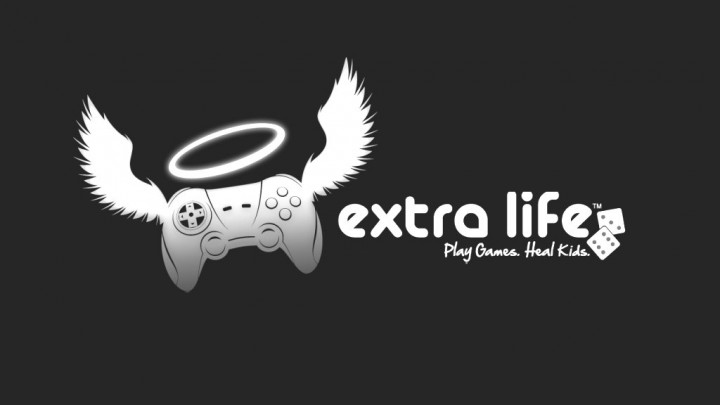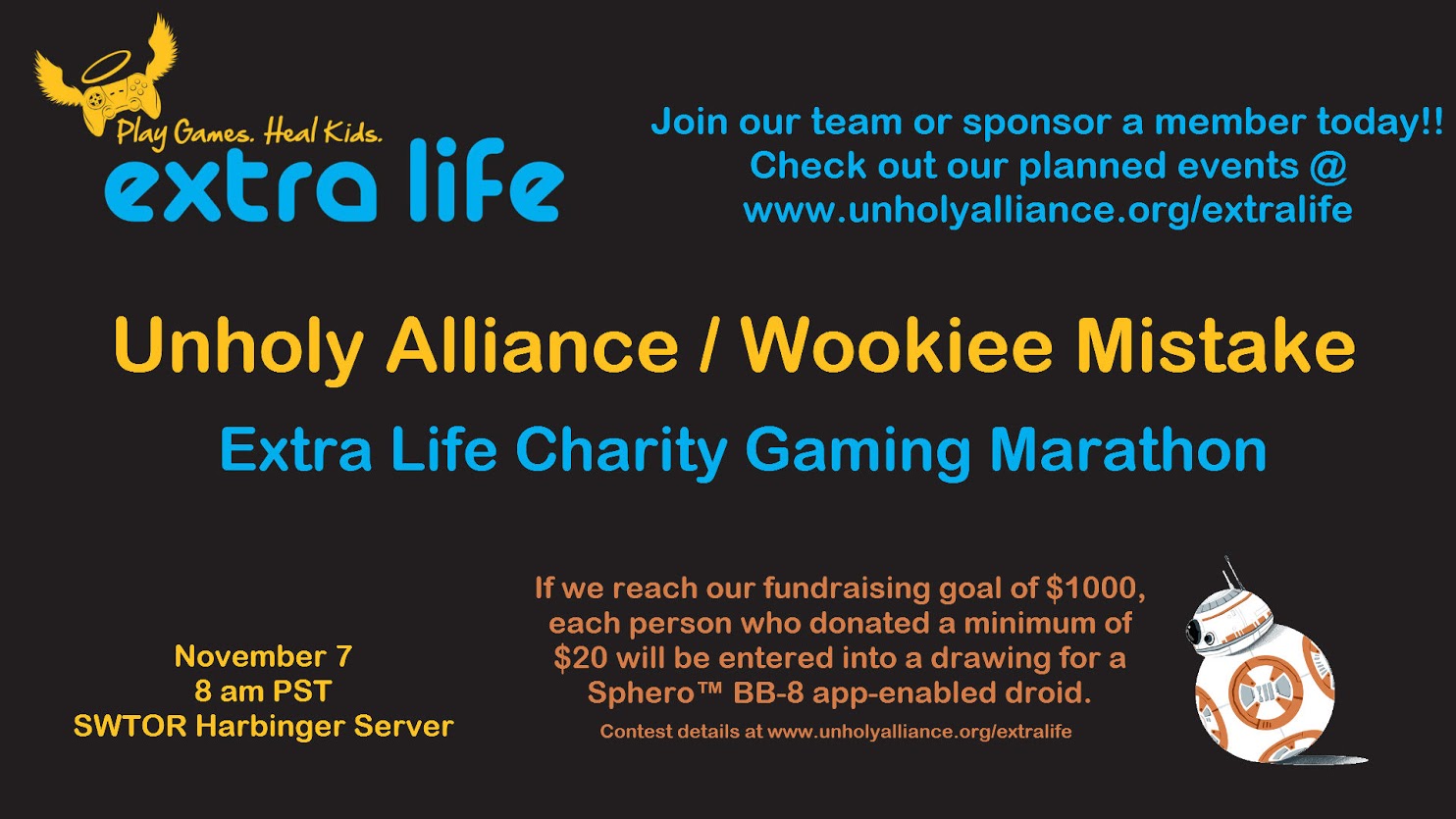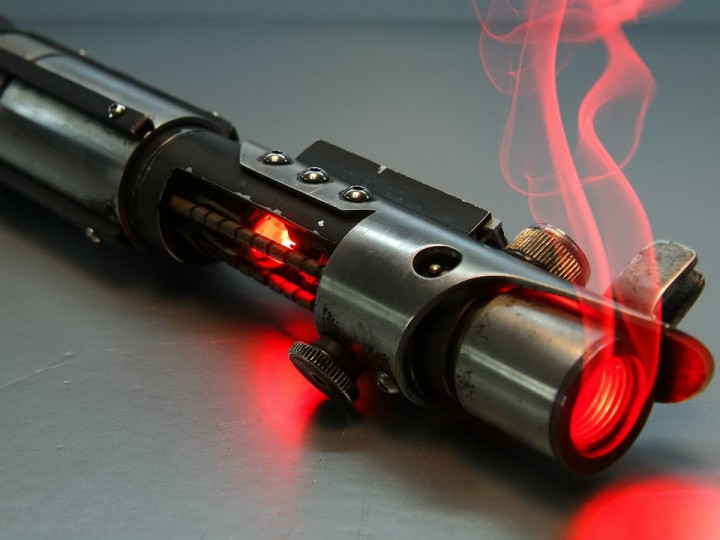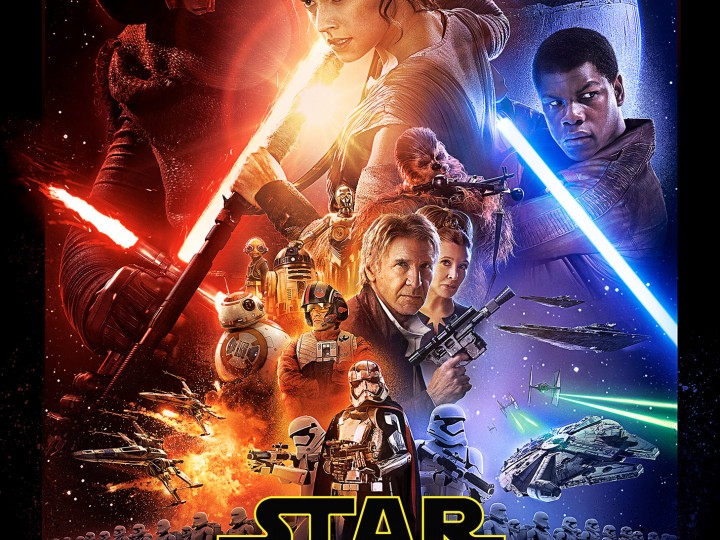Throughout the short period of time that I have been gaming I’ve seen announcements for many charity events. In the very start this seemed like a strange combination. Gaming and charity? Really? We often learn from society to be skeptical to the world of (especially online) gaming. We hear much of the negative effects. The people who are a part of online communities that they genuinely care about are often made to feel foolish by people who are not a part of this environment and who will heavily judge those who are. I’ve written before about the positive effects of gaming for the individual. But is there more to it?
A few days ago I got a message on twitter from @UnholyAlliances informing me of the upcoming Extra Life charity event their guild is taking part in. It reminded me of the positive effects gaming can have not just on individuals but also on larger groups as well as the public. Some interesting examples of how awareness of an issue can be increased involve gamification. If you haven’t heard the term before, gamification is the application of typical elements of game playing (e.g. point scoring, competeting with others, etc) in a way that will encourage engagement with a product or a service. It is typically used as an online marketing technique. Gamification is exciting because it promises to make the hard stuff in life fun. That’s why it works so well with charity and fundraising. As the popularity of smartphones increase charities have developed new ways to engage the public. Gamification is less about playing games and more about the psychology behind our behaviour which elicits us to act or re-act in a certain way. One very interesting example of this is the app iHobo. In 2010, youth homelessness charity Depaul UK launched iHobo – a tamagotchi-style app where people had to look after a young person living rough on the streets for three days. Through push notifications the app (which was downloaded over 600,000 times) would notify it’s user when the homeless person in your phone needed food, a sleeping bag or shelter from the cold. Helping the person would earn you points, neglect him and you don’t just lose points but you risk the homeless person’s life spiralling out of control. The goal of all this was to raise awareness of the complexity of the varied issues surrounding youth homelessness.
There are other games and apps like this with the goal of raising awareness. Cell Slider is a game that encourages ordinary people to learn how to analyse real life cancer data. Give Girls Power is an online game created by Save the Children in 2012 and puts you in the shoes of a 16-year-old girl, giving you a number of scenarios where you need to make decisions. The game highlights the lack of options that teenagers in developing countries have in deciding their own future.
Marketing for charity is a difficult thing. Let’s have a look into the science of PR and mass-communication to see what we have learnt about advertising for charity. From the many attempts to create exposure for charities it is clear that a lot people will switch channels when TV adverts appear showing horrifying images of children starving in an orphanage. This is obviously the last thing the marketing team wants but unfortunately these images create dissonance within us. That means that the advert is more likely to prompt us to change channels than to donate money. The possible sense of reward for such a donation is small if not inexistent because regardless of if you donate that money or not the children will continue to starve. Tomorrow when you turn on your TV you won’t see on the news “we finally beat starvation and poverty!”. No, you’re going to see that advert with the children starving again. This is why big televised fundraisers often aim towards entertaining the public and not focus too heavily on the actual issue through say a two hour long documentary. This is also where gaming comes in. If the way to increase awareness and funds for important charities is to make people feel good doing something they love rather than making them feel guilty, insignificant and powerless, then is that so bad? All of a sudden gaming and charity doesn’t seem like such a strange matchup.
Youtuber PewDiePie, after having raised one million dollars for charities together with his followers, said: “I just love how we can turn this stupid channel, let’s be honest here bros, it’s pretty dumb, and turn that into something that helps change the world into a better place.”
So, if you want to be a part of this innovative new way of raising awareness there is an upcoming opportunity. Let’s return to my message from @UnholyAlliances!
Extra Life’s new “PLAY GAMES. Heal Kids.” marathon event is just around the corner. Extra Life means gamers doing what they do best to help sick and injured children at their chosen Children’s Miracle Network Hospital. The SWTOR guilds Unholy Alliance and Wookiee Mistake as well as Passionately Casual Podcast have decided to host a team supporting this event. Make sure to check out their website highlighting the special events their team has planned. There you can also view the list of prizes for giveaways during and after the marathon. These guilds play on the Harbinger server but anyone is welcome to join the team or sponsor a member. No guild membership is required to join! If you want to donate, it’s easy. Go to the Team Page and CHOOSE A PARTICIPANT TO SPONSOR. If you want to play with the team you can get started by registering with the Unholy Alliance and Wookiee Mistake Team right here. Portions of the event will be streamed by Vulkk. Some of the player events this year will be a group tauntaun mount hunt, fleet datacron run, leveling races, stronghold tours, hide & seek scavenger hunt, world bosses and much more!
The event runs from 8am November 7 until 8am November 8, 2015. Players can also opt for the 12hour option from 8am-8pm Nov 7. This will be a fun packed event so don’t miss out!







